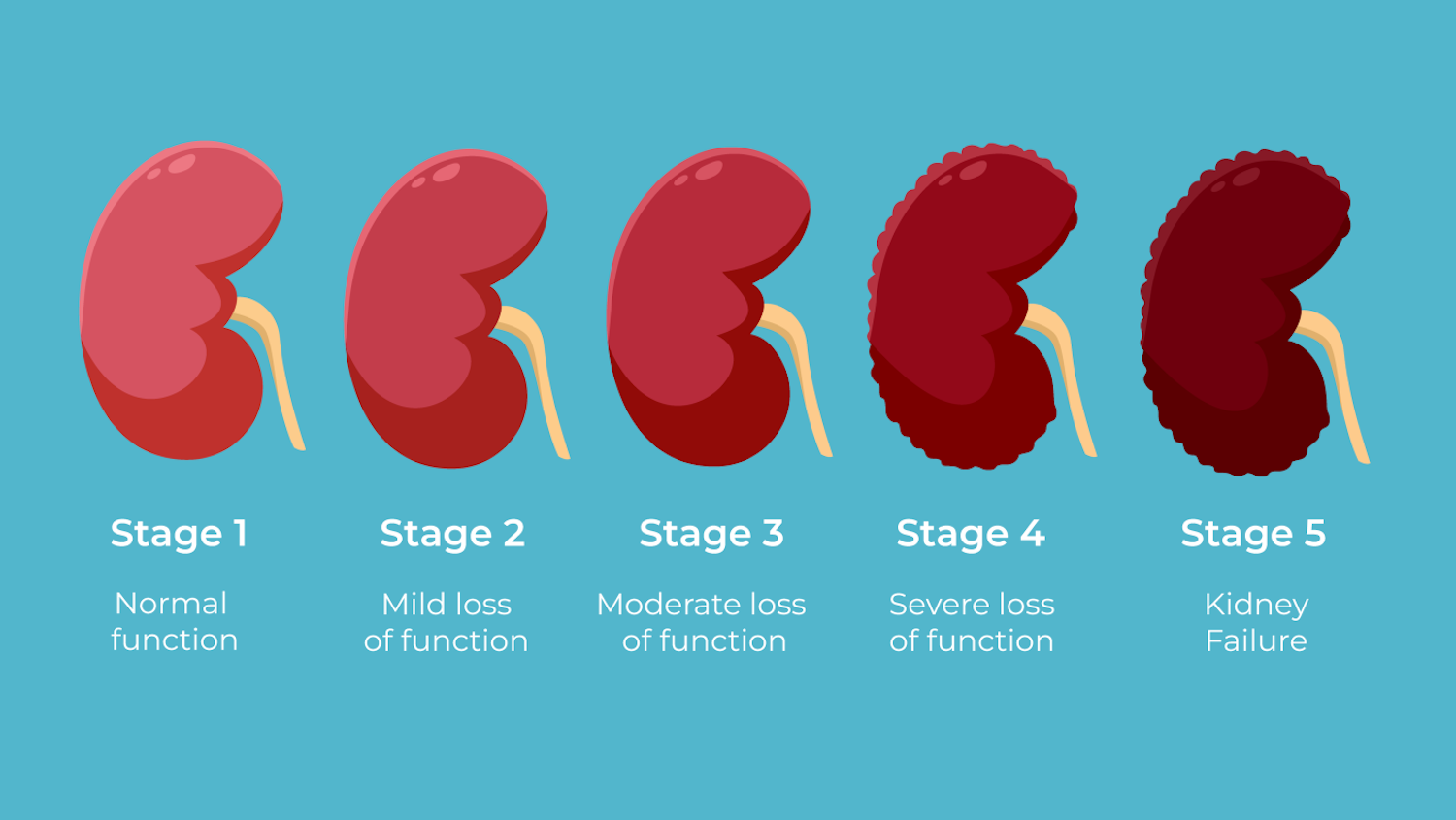What is kidney disease?
Our kidneys play a crucial role in keeping us healthy, the main role being to cleanse the blood of toxins and to filter the waste into urine. When the kidneys stop working properly, this is known as Chronic Kidney Disease (CKD). While there are often no symptoms in the early stages, CKD can eventually lead to kidney failure if left untreated, sometimes without warning. Once the kidneys fail, it will prove fatal without dialysis or a kidney transplant. There is no cure for CKD.
How widespread is kidney disease?
CKD affects over 7 million people in the UK and around 850 million people worldwide - that’s over 10% of the world’s population. Despite this, up to 90% of those affected don’t even realise they have it. However, CKD is very easily diagnosed with a simple blood or urine test.
High blood pressure and poorly managed diabetes are the biggest causes of CKD, so it’s even more important for these groups of people to ensure they get tested regularly.

What does the future hold?
Currently, every day ten people are added to the kidney transplant waiting list and two people die while still waiting to receive a kidney in the UK. Kidney Research UK estimates the cost to the NHS of managing this backlog and treating kidney patients at around £6.4 billion a year - around 3.2% of total NHS budgets.
While not always avoidable, maintaining a healthy diet, taking regular exercise and controlling your blood pressure are all crucial in preventing the onset of CKD. However, the most important and effective way to treat kidney disease is early detection. Raising awareness and educating people about the dangers of CKD and encouraging a culture of regular check-ups will be critical to combatting the threat posed by CKD.
How does a kidney test work?
The Newfoundland Kidney Test screens for elevated amounts of albumin (a protein found in blood) in urine. While healthy kidneys filter waste from your blood and retain the healthy components, damaged kidneys cause proteins to leak into your urine. Albumin is one of the first proteins to leak when kidneys become damaged. The test is performed with a simple urine sample and gives accurate results in as little as three minutes.